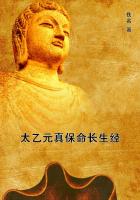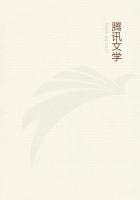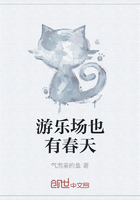Speaking of those thin pumpkin-pies kept in the cellar cupboard.Iused to know a boy, who afterwards grew to be a selectman, and brushed his hair straight up like General Jackson, and went to the legislature, where he always voted against every measure that was proposed, in the most honest manner, and got the reputation of being the "watch-dog of the treasury." Rats in the cellar were nothing to be compared to this boy for destructiveness in pies.He used to go down whenever he could make an excuse, to get apples for the family, or draw a mug of cider for his dear old grandfather (who was a famous story-teller about the Revolutionary War, and would no doubt have been wounded in battle if he had not been as prudent as he was patriotic), and come upstairs with a tallow candle in one hand and the apples or cider in the other, looking as innocent and as unconscious as if he had never done anything in his life except deny himself butter for the sake of the heathen.And yet this boy would have buttoned under his jacket an entire round pumpkin-pie.And the pie was so well made and so dry that it was not injured in the least, and it never hurt the boy's clothes a bit more than if it had been inside of him instead of outside; and this boy would retire to a secluded place and eat it with another boy, being never suspected because he was not in the cellar long enough to eat a pie, and he never appeared to have one about him.But he did something worse than this.When his mother saw that pie after pie departed, she told the family that she suspected the hired man; and the boy never said a word, which was the meanest kind of lying.That hired man was probably regarded with suspicion by the family to the end of his days, and if he had been accused of robbing, they would have believed him guilty.
I shouldn't wonder if that selectman occasionally has remorse now about that pie; dreams, perhaps, that it is buttoned up under his jacket and sticking to him like a breastplate; that it lies upon his stomach like a round and red-hot nightmare, eating into his vitals.
Perhaps not.It is difficult to say exactly what was the sin of stealing that kind of pie, especially if the one who stole it ate it.
It could have been used for the game of pitching quoits, and a pair of them would have made very fair wheels for the dog-cart.And yet it is probably as wrong to steal a thin pie as a thick one; and it made no difference because it was easy to steal this sort.Easy stealing is no better than easy lying, where detection of the lie is difficult.The boy who steals his mother's pies has no right to be surprised when some other boy steals his watermelons.Stealing is like charity in one respect,--it is apt to begin at home.
X
FIRST EXPERIENCE OF THE WORLD
If I were forced to be a boy, and a boy in the country,--the best kind of boy to be in the summer,--I would be about ten years of age.
As soon as I got any older, I would quit it.The trouble with a boy is, that just as he begins to enjoy himself he is too old, and has to be set to doing something else.If a country boy were wise, he would stay at just that age when he could enjoy himself most, and have the least expected of him in the way of work.
Of course the perfectly good boy will always prefer to work and to do "chores" for his father and errands for his mother and sisters, rather than enjoy himself in his own way.I never saw but one such boy.He lived in the town of Goshen,--not the place where the butter is made, but a much better Goshen than that.And I never saw him, but I heard of him; and being about the same age, as I supposed, Iwas taken once from Zoah, where I lived, to Goshen to see him.But he was dead.He had been dead almost a year, so that it was impossible to see him.He died of the most singular disease: it was from not eating green apples in the season of them.This boy, whose name was Solomon, before he died, would rather split up kindling-wood for his mother than go a-fishing,--the consequence was, that he was kept at splitting kindling-wood and such work most of the time, and grew a better and more useful boy day by day.Solomon would not disobey his parents and eat green apples,--not even when they were ripe enough to knock off with a stick, but he had such a longing for them, that he pined, and passed away.If he had eaten the green apples, he would have died of them, probably; so that his example is a difficult one to follow.In fact, a boy is a hard subject to get a moral from.All his little playmates who ate green apples came to Solomon's funeral, and were very sorry for what they had done.
John was a very different boy from Solomon, not half so good, nor half so dead.He was a farmer's boy, as Solomon was, but he did not take so much interest in the farm.If John could have had his way, he would have discovered a cave full of diamonds, and lots of nail-kegs full of gold-pieces and Spanish dollars, with a pretty little girl living in the cave, and two beautifully caparisoned horses, upon which, taking the jewels and money, they would have ridden off together, he did not know where.John had got thus far in his studies, which were apparently arithmetic and geography, but were in reality the Arabian Nights, and other books of high and mighty adventure.He was a ****** country-boy, and did not know much about the world as it is, but he had one of his own imagination, in which he lived a good deal.I daresay he found out soon enough what the world is, and he had a lesson or two when he was quite young, in two incidents, which I may as well relate.
If you had seen John at this time, you might have thought he was only a shabbily dressed country lad, and you never would have guessed what beautiful thoughts he sometimes had as he went stubbing his toes along the dusty road, nor what a chivalrous little fellow he was.















